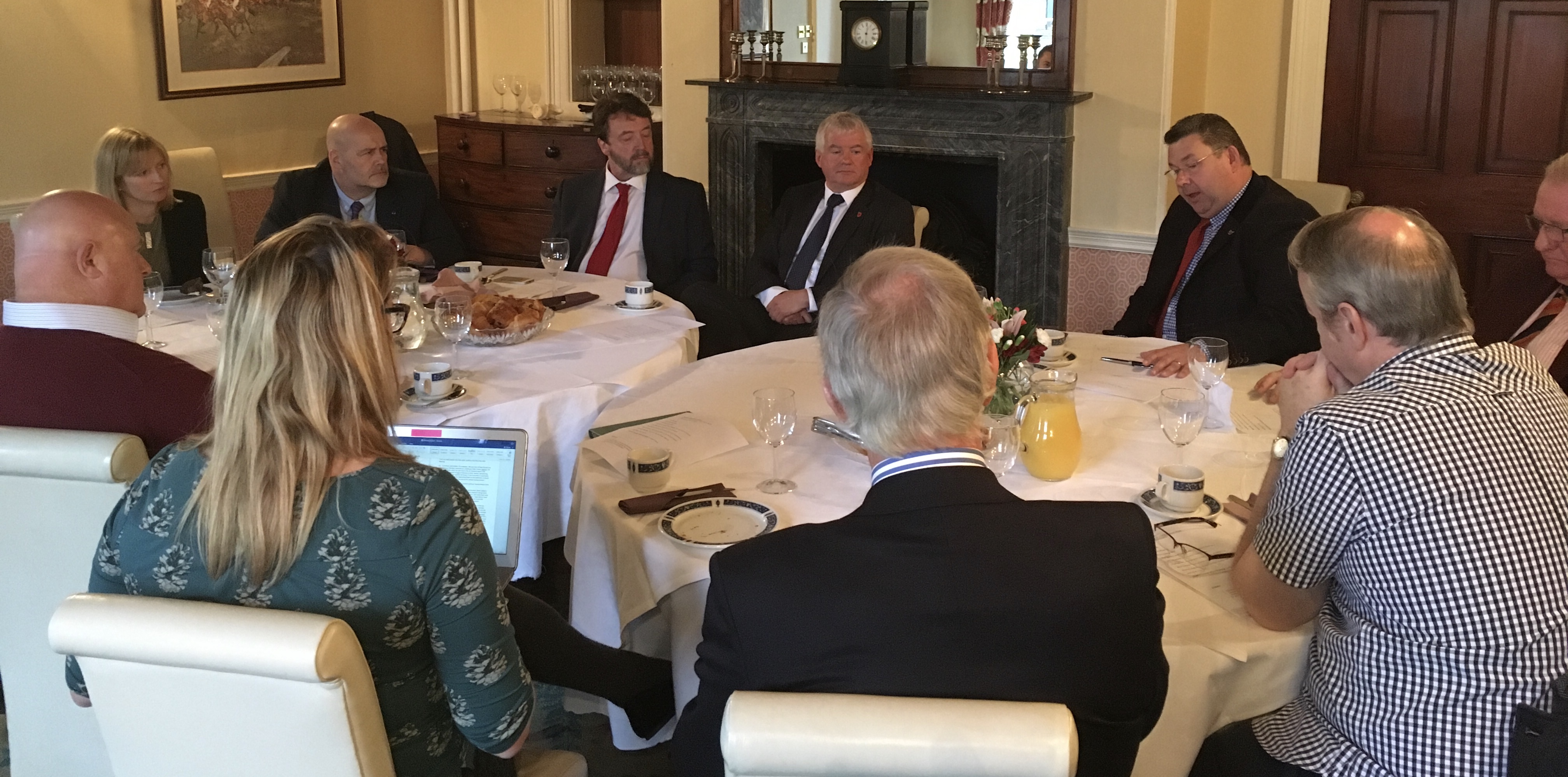In 1988 somebody said this:
“Just think for a moment what a prospect that is. A single market without barriers—visible or invisible—giving you direct and unhindered access to the purchasing power of over 300 million of the world's wealthiest and most prosperous people.
“Bigger than Japan. Bigger than the United States. On your doorstep. And with the Channel Tunnel to give you direct access to it. It's not a dream. It's not a vision. It's not some bureaucrat's plan. It's for real. And it's only five years away.”
It duly came about and over nearly 25 years the European Single Market has been hugely successful for Britain and British businesses. Jobs have been created, new markets have opened up, it has provided the platform for Britain attracting the lion’s share of inward investment and it has contributed massively to economic growth in the UK. Over the years the single market was expanded to encompass new areas of trade, indeed it is still developing with the market in digital goods and services evolving.
At the same time and partly because of the Single Market, trade has become more complex, more trans-national and more interdependent. There are many examples of how many times that consumer goods cross borders during their manufacturing process. It’s easy to understand how motor components are manufactured across borders, but other aspects of cross border production are less than obvious. The Chemicals Industry Association tells of how that fabric conditioner crosses borders 4 times during manufacture and we are told Bailey’s Irish Cream crosses the border in Ireland over 20 times during the manufacturing process.
When the social element of the Single Market - based on the very British fair-minded notion that a level playing field for capital should also involve a level playing field for labour - was added in the Maastricht Treaty Britain opted out. That lasted until Labour won the 1997 election with a landslide on a clear manifesto commitment to take Britain into the social aspects of the Treaty.
The Single Market is something Britain was instrumental in shaping - almost British common sense. It has been an undoubted success - which is why very few of those who campaigned for Britain to leave the EU talked of leaving the Single Market. In fact some of the leading figures in the ‘Leave’ campaign claimed they were not seeking to leave the Single Market. Had they done so it is not at all clear that the referendum would have gone as it did. It simply wasn’t a question, and it certainly was never on the ballot. Theresa May subsequently sought a mandate to leave the Single Market and the customs union but failed to gain a majority. Nonetheless, Leave politicians are seriously talking about a cliff edge Brexit that takes us out of the single market and customs union, ostensibly to be able to end free movement and place limits on migration. The dependency of key UK sectors on migrant and seasonal migrant labour makes that impossible to deliver without serious consequences.
When I meet constituents, businesses, unions and organisations we always talk about what Brexit will mean to them, their customers and clients. Last week I met with business representatives at the Kent Invicta Chamber of Commerce Business to Business event at Chatham and at a roundtable event organised by the new MP for Canterbury, Rosie Duffield. The message from business was clear: the uncertainty caused by Brexit is making things worse at a time of uncertain consumer and business confidence. It is in the nature of business to take the rough with the smooth and to try to ‘just get on with it’, but it is clear that planning for the future is difficult - especially when little progress is being made in the negotiations between Britain and the EU27. I find two main responses to the notion of withdrawal from the Single Market and customs union - from the larger firms who know the implications of handing customs
bureaucracy - they know that possible tariffs are a problem but that a larger problem is the time and cost consumed by customs form filling and delays. Firms with fewer than 300 employees have limited capacity to even address the issue before needs must.
I want to see Britain remaining in the single market and the customs union because it is the least damaging Brexit we can realistically achieve. If you agree with me then you can find more about the Labour Campaign for the Single market here and about Open Britain here.
Not long ago somebody said this about the Single Market:
“The EU gives businesses like the Black Sheep Brewery in Masham access to the world’s largest market. It gives farmers working in some of the most difficult terrain in our Country subsidy support. It gives young people across our Country the opportunity to move freely throughout the continent. And if you are an entrepreneur, as I was before I became your MP, the EU Single Market allows you to trade freely without having to set up offices and legal structures in each country.
The EU Single Market is important because it means job opportunities for our children and grandchildren. Of course we would survive outside the EU but the question is would we do as well as we would within it?”
Ironically this was Julian Smith who, since he became Conservative Chief Whip, is now responsible for getting their ‘hard’ Brexit through the House of Commons. The quote at the top of the article was one Margaret Thatcher.
How far the Conservatives have come from being the party of business.



